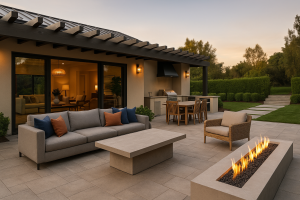Looking for ways to reduce your electricity bills while also contributing to a more sustainable future? A solar roofing system might be just what you need. By harnessing the power of the sun, these eco-friendly roofing solutions offer a range of benefits for homeowners and businesses alike.
So, what exactly are the benefits of a solar roofing system? For starters, they provide an energy-efficient roofing option that can help you save money on your monthly electricity bills. Additionally, solar panel roofs offer a range of financial incentives, making them an investment that can pay off in the long run.
But it’s not just about the financial benefits. By installing a solar roofing system, you can also do your part to reduce greenhouse gas emissions and promote a more sustainable future. These eco-friendly roofing options are a crucial part of the move towards more environmentally friendly practices, and they can make a significant impact on the health of our planet.
So if you’re looking to reduce your carbon footprint and save some money along the way, consider investing in a solar roofing system. In the following sections, we’ll explain how these systems work, dive deeper into their benefits, and provide answers to some frequently asked questions.
How Does a Solar Roofing System Work?
A solar roofing system consists of solar panels that are installed on the roof of a building. These panels are composed of photovoltaic (PV) cells, which capture sunlight and convert it into electricity. The electricity generated by the panels is then sent to an inverter, which converts the direct current (DC) electricity into alternating current (AC) electricity that can be used to power the building.
The process of capturing, converting, and using solar energy is known as solar energy harvesting, and it has become an increasingly popular way to generate clean, renewable energy.
There are two main types of solar roofing systems: grid-tied and off-grid. Grid-tied systems are connected to the local power grid, which means that excess energy produced by the panels can be sold back to the utility company. Off-grid systems, on the other hand, are not connected to the power grid and rely on batteries to store energy for use during times when there is no sunlight.
Solar roofing systems are becoming more affordable and efficient every year, and they offer many benefits to homeowners and businesses alike. By using a solar roofing system, you can reduce your reliance on fossil fuels, lower your electricity bills, and contribute to a more sustainable future.

Benefits of a Solar Roofing System
Investing in a solar roofing system can bring a multitude of benefits to your home, wallet, and the environment. Here are some of the key advantages:
| Benefits | Description |
|---|---|
| Reduced Electricity Bills | By harnessing the power of the sun, a solar roofing system can significantly reduce your monthly electricity bills. This is especially true if you live in an area with high electricity rates or if your household consumes a lot of energy. Over time, the cost savings can add up to thousands of dollars. |
| Financial Incentives | In addition to cost savings on your electricity bills, installing a solar roofing system can also make you eligible for financial incentives. Depending on where you live, you may be able to take advantage of tax credits, rebates, or other incentives that can lower the upfront cost of your system. |
| Increased Home Value | A solar roofing system can also increase the value of your home. According to a study by the National Renewable Energy Laboratory, homes with solar systems sell for an average of 20% more than homes without them. This means that investing in solar can be a smart financial decision in the long run. |
| Reduced Carbon Footprint | By generating clean, renewable energy from the sun, a solar roofing system can help reduce your carbon footprint and contribute to a more sustainable future. This is an important consideration for anyone who cares about the environment and wants to reduce their impact on the planet. |
| Energy Independence | Finally, a solar roofing system can provide you with energy independence. By generating your own energy, you are no longer reliant on the grid and can enjoy greater control over your energy usage. This is especially important during power outages or other emergencies. |
Overall, a solar roofing system can offer a range of benefits that make it a smart investment for homeowners. By reducing your electricity bills, increasing your home’s value, and helping to protect the environment, this technology is well worth considering.

Environmental Benefits of a Solar Roofing System
A solar roofing system is an eco-friendly roofing option that provides a multitude of environmental benefits. By converting solar energy into electricity, solar roofing systems can help reduce greenhouse gas emissions that contribute to climate change.
According to the National Renewable Energy Laboratory, the use of solar energy can reduce greenhouse gas emissions by as much as 48% compared to traditional fossil fuel-based electricity generation. By installing a solar roofing system, you can do your part to help reduce your carbon footprint and contribute to a more sustainable future.
Reduced Energy Demand
One of the primary environmental benefits of a solar roofing system is its ability to reduce energy demand from the grid. This means that less electricity needs to be generated by traditional power plants, which can have a significant impact on carbon emissions. By reducing your reliance on traditional electricity sources, you can help to reduce air and water pollution, as well as other negative environmental impacts associated with electricity generation.
Reduced Water Usage
Traditional power plants require significant amounts of water to generate electricity. By reducing your reliance on these power sources, you can help to conserve water resources. According to the Union of Concerned Scientists, a 4-kilowatt solar panel system can save as much as 100,000 gallons of water per year through reduced fossil fuel power generation.
Long Lifespan and Recyclability
Another environmental benefit of a solar roofing system is its long lifespan and recyclability. Most solar panels have a lifespan of up to 25 years or more, which means they can generate electricity for many years without being replaced. Additionally, solar panels are 100% recyclable, which means that they can be disposed of properly without contributing to waste in landfills.

Installing a solar roofing system is a smart choice for anyone who wants to reduce their environmental impact and contribute to a more sustainable future. By reducing energy demand, conserving water resources, and providing a long-lasting and recyclable energy source, a solar roofing system is one of the most environmentally friendly roofing options available.
Installation and Maintenance of a Solar Roofing System
Installing a solar roofing system requires careful planning and execution. It’s important to hire a professional contractor who has experience with solar installation. They will assess your home’s roof structure and determine the best placement for your solar panels.
The panels must be placed on a south-facing slope and free from any obstructions that could block the sunlight. This ensures they can capture the maximum amount of solar energy. Once the panels are installed, they must be connected to an inverter, which converts the direct current (DC) energy from the panels to alternating current (AC) energy that can be used in your home.
Maintenance of your solar roofing system is relatively simple. You should clean the panels regularly to remove any buildup of dirt or debris that can reduce their efficiency. You may also need to trim nearby trees or bushes that could shade the panels.

Energy-efficient roofing practices can also help improve the performance of your solar roofing system. It’s important to have a well-insulated and well-ventilated attic to prevent excess heat from building up and reducing the efficiency of your panels. You may also want to consider using light-colored roofing materials that reflect the sun’s rays rather than absorbing them.
Financing Options for a Solar Roofing System

Investing in a solar roofing system can be a major financial commitment upfront, but the long-term benefits can outweigh the initial cost. Fortunately, there are several financing options available to help make this investment more manageable and affordable.
Types of Financing
| Option | Description |
|---|---|
| PPA (Power Purchase Agreement) | A PPA is a contract between you and a solar energy provider. The provider installs solar panels on your roof and you buy the energy generated at a reduced rate compared to what you would pay for traditional energy. |
| Solar Loan | A solar loan is a loan specifically designed for purchasing a solar roofing system. You pay off the loan over time with interest, but the savings on your electricity bills are often greater than the loan payments. |
| Cash Purchase | If you have the funds available, a cash purchase can be the most cost-effective option. You pay for the system upfront and enjoy greater long-term savings. |
Financial Incentives
In addition to financing options, there are several financial incentives available to help you offset the cost of a solar roofing system:
- Federal tax credits: The federal government offers a tax credit of up to 26% of the cost of a solar roofing system.
- State and local incentives: Many states and local governments offer additional incentives, such as rebates or property tax exemptions.
- SRECs (Solar Renewable Energy Certificates): SRECs are tradable certificates that represent the environmental benefits of generating solar energy. You can sell SRECs to energy companies and utilities to generate additional income.
Choosing the Right Financing Option
When choosing a financing option for your solar roofing system, it’s important to weigh the benefits and drawbacks of each option. Consider factors such as the length of the loan, interest rates, and potential savings on your electricity bills.
It’s also a good idea to get quotes from multiple solar providers and financing companies to compare costs and options. With the right financing and incentives, a solar roofing system can be a wise investment in both financial and environmental sustainability.
FAQ on Solar Roofing Systems
As solar roofing systems become more popular, you may have questions about how they work and how they can benefit your home. Here are some answers to commonly asked questions:
What is a solar roofing system?
A solar roofing system is a type of roofing that incorporates solar panels into its design. These panels capture and convert solar energy into electricity that can be used to power your home.
How efficient are solar roofing systems?
The efficiency of a solar roofing system will depend on a variety of factors, including the size of the system and the amount of sunlight it receives. However, most solar roofing systems are highly efficient and can generate enough energy to significantly reduce your electricity bills.
What are the maintenance requirements for a solar roofing system?
Like any other type of roofing, a solar roofing system will require regular maintenance to function properly. This may include cleaning the panels, checking the wiring and connections, and ensuring that the system is free from damage or debris. It’s important to work with a qualified professional to ensure that your system is properly maintained.
What is the lifespan of a solar roofing system?
The lifespan of a solar roofing system will depend on a variety of factors, including the quality of the materials used and the amount of wear and tear it experiences. However, most systems are designed to last for at least 25 years.
How much does a solar roofing system cost?
The cost of a solar roofing system will depend on its size and the complexity of the installation. However, many homeowners find that the long-term savings on their electricity bills outweigh the initial investment.
Are there any financial incentives for installing a solar roofing system?
Yes, there are a variety of financial incentives available for homeowners who install solar roofing systems. These may include tax credits, rebates, and other financial incentives offered by federal or state governments. It’s important to do your research and work with a qualified professional to ensure that you take advantage of all available incentives.
Can a solar roofing system be installed on any type of roof?
Most types of roofing can accommodate a solar roofing system, including asphalt shingles, metal roofs, and tile roofs. However, it’s important to work with a qualified professional to ensure that your system is properly installed and will function effectively.









